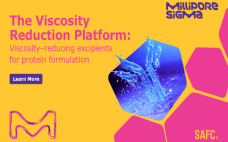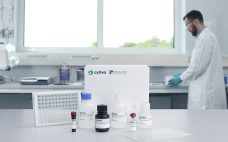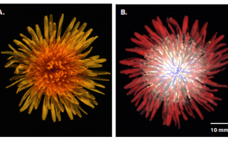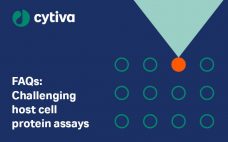Protein viscosity is one of the major obstacles in preparing highly concentrated protein formulations suitable for subcutaneous (subQ) injection. Highly viscous protein solutions would require a significant force to be applied to the syringe for injection. As a result, the patient could experience a considerable amount of pain. In many cases, injectability would not be possible. When characterizing protein viscosity behavior, one can differentiate two different concentration regimes. At very low concentrations below about 75 mg/mL, proteins are rarely viscous.…
Downstream
Cytiva Strategy for Host Cell Protein Control
A critical aspect of therapeutic development and manufacture is host cell protein (HCP) detection, quantitation, and removal from drug substances, to ensure efficacy and prevent immunogenicity. It is important to mitigate risk by challenging your assay for each new molecule and selecting the most suitable kit. Cytiva offers a range of solutions to support scientists and developers in creating an effective strategy for HCP control. Read more about our strategy for HCP control.
Fluorescence Reveals Hidden Details in Flowers That Attract Pollinators
Analytical bioprocess scientists and lab managers must capture images at the highest resolution and across a large spectrum, without compromising image quality. The Amersham ImageQuant™ 800 (IQ800) imager allows automatic high-resolution imaging across the entire visible spectrum, from UV to infrared. The IQ800 system is equipped with six different types of light-emitting diodes (LEDs) and corresponding filters, making imaging easy for a wide variety of applications beyond chemiluminescence. The best gel and blot images without the guesswork using SNOW imaging…
Managing Frozen Transport Logistics in the Biopharmaceutical Cold Chain
The enormous task of establishing a reliable infrastructure to supply COVID-19 vaccines across the globe has thrust cold chain shipping and its associated challenges into the spotlight. Valuable biologics, such as vaccines and recombinant therapeutic proteins, are often kept in a frozen state during storage and shipping. This requires robust solutions to ensure temperatures do not fluctuate and product integrity is preserved. As biopharmaceutical manufacturing grows increasingly global, the production and transport networks required to keep operations running smoothly become…
Is Fiber-Based Protein A Chromatography the Missing Piece in Single-Use mAb Purification?
Protein A chromatography resins are widely used for therapeutic antibody production because they perform well, giving excellent recovery and purity. But resin-based chromatography methods are better suited to large-scale manufacture. In clinical monoclonal antibody (mAb) purification, batch sizes are small, so protein A resins are rarely used to their full lifetime potential. As a result, protein A resins may be cost-prohibitive, especially for mAb manufacturing when doses are very low or where target patient populations are small. Protein A resins…
Virtual Demonstration of the BioSMB Multi-Column Chromatography Platform
This webinar provides a virtual demonstration of the BioSMB multi-column chromatography platform — a fully scalable single-use solution that reduces resin usage and enables manufacturers to explore continuous processing. The demo starts with an overview of the BioSMB PD system for small-scale manufacturing and then continues with the BioSMB Process systems for clinical and commercial manufacturing. Click here to watch this virtual demonstration.
Crude Sample Analysis in Process Development: Time and Cost Savings
This overview highlights a few examples from drug discovery and process development where the Octet® system demonstrated a significant reduction in the analysis time over ELISA and HPLC by eliminating the need for purification, while still achieving high accuracy and precision. The total assay times were dramatically reduced with fewer assay steps and less labor time involved. The easy and versatile, fully integrated Octet® assay has additional advantages over other label-free technologies like SPR, where sample washing steps are required.…
Expanding Applications in Downstream Biologics Characterization: Stability, Formulations and Aggregation Studies using Octet®
Structure is an important characteristic for protein activity and function. Structural alterations due to protein mis-folding, denaturation or unfavorable conditions can lead to the formation of aggregate species that can affect the efficacy and safety of biologic drug candidates. While many biophysical analytical tools are well suited for detecting these aggregates, few offer a combination of structural and functions assessment in the same system. Sartorius’ Octet® platform is an easy-to-use analytical tool that can detect the presence of aggregated species…
FAQs: Challenging host cell protein assays for improved risk mitigation
Host cell proteins (HCP) are critical to quality control in biologics development. If left unremoved, they can cause immunogenic responses and reduce drug efficacy. In our last webinar we shared Cytiva’s strategy for designing a comprehensive HCP risk mitigation strategy. We discussed how to challenge your assays early to ensure accurate measurements, build confidence, and reduce the risk of unexpected HCP levels. Our HCP experts highlighted and responded to the most common questions raised around host cell protein assays. Want…
Keep Your HCPs Under Control
When it comes to manufacturing biologics, managing host cell protein (HCP) levels is essential. A robust HCP strategy can help protect both your timeline and budget. Cytiva understands the challenges researchers face in HCP detection, quantification, and removal. We offer an end-to-end solution for HCP management, and our experts will work with you to find the right strategy tailored to your needs. To get started now, check out our knowledge center for expertise and advice on enhancing your HCP strategy.










